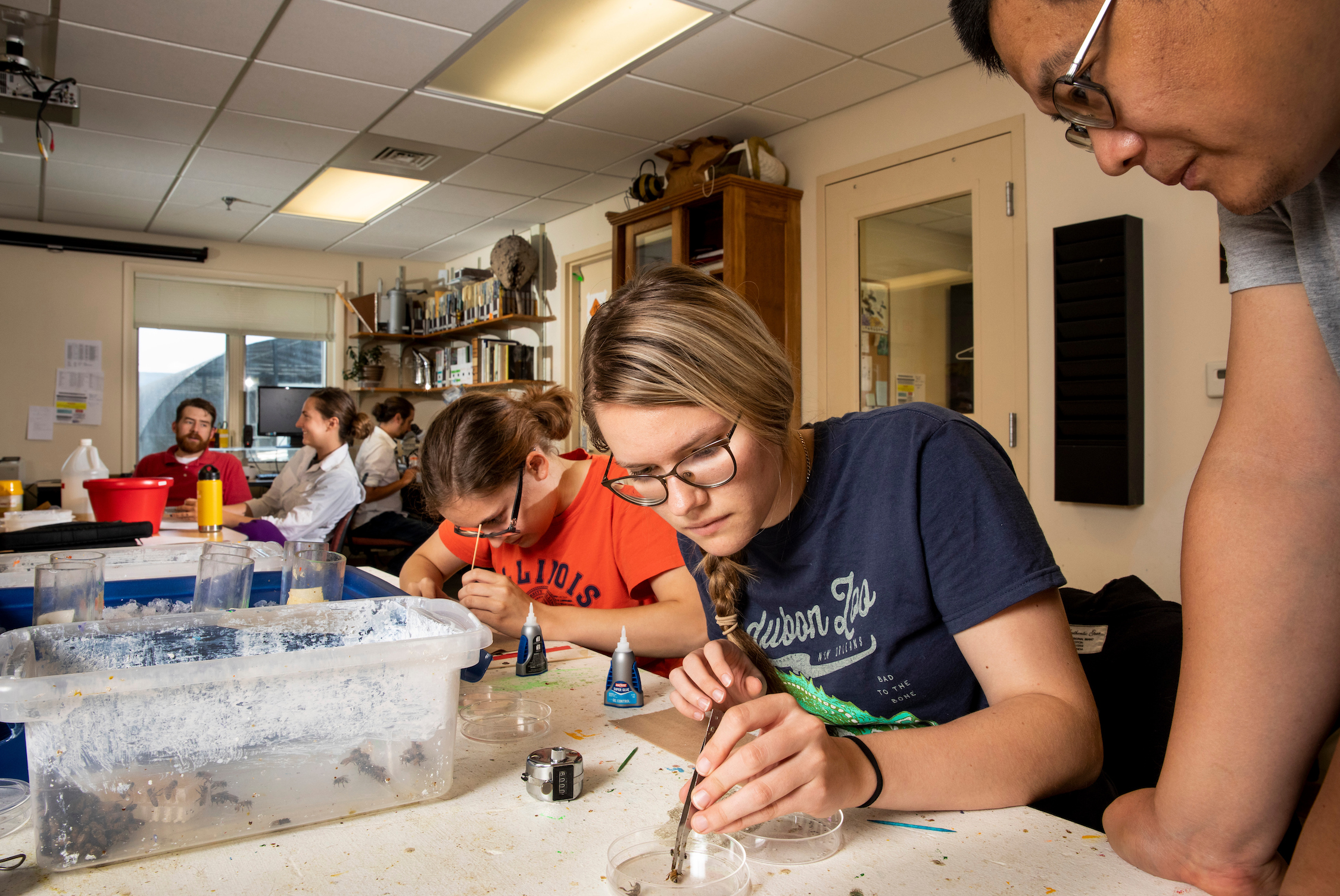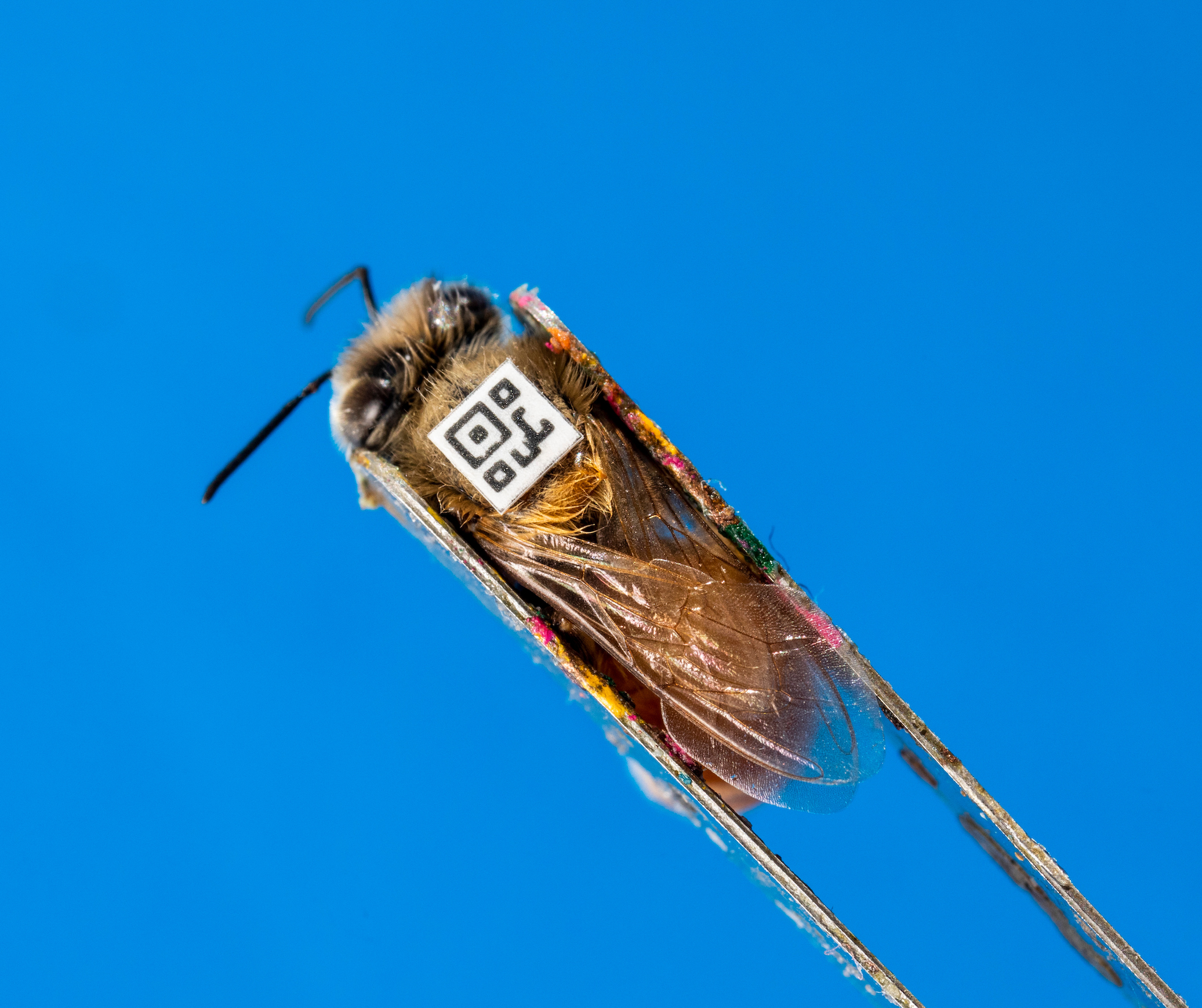[This blog was written by Briana Sobecks, an undergraduate student majoring in Chemical Engineering. It is part of the SIB Student Research Experience, a blog series that offers a closer look at students and their research.]
Over the summer, I had the amazing opportunity to work as an undergraduate field assistant in Dr. Gene Robinson’s lab. I first met Dr. Robinson at a presentation about the Earth Biogenome Project, a global initiative to sequence the DNA of all species on earth. When I spoke to him afterwards, he said his lab hired undergraduates as summer researchers at the Bee Research Facility. I applied for the position later that year and was ecstatic when I was hired.
I had several responsibilities around the Bee Research Facility. One was taking care of small indoor bee colonies. Each colony had a queen who could lay up to sixty eggs a day. I supplied food for the colonies and extracted these eggs, which were given CRISPR injections to manipulate their neurological development. I also prepared small cages of bees and monitored them in behavioral assays. These assays are used to determine how either aggressive or nurturing behavior in bees is affected by a difference in internal chemicals. Depending on which chemical is used, the bees may be more responsive in attacking an intruder or more observant in watching their queen eggs.

The task I spent the most time on was bee barcoding. Bee barcoding involves creating a colony of 1200 individually identifiable bees by gluing a unique QR code to the back of each one. This task was highly difficult since the tags had to be oriented perfectly to be read by the computer. However, the more I practiced, the easier it became. Once the colonies were made, the computer system was able to track each individual bee, measuring how different environmental factors affected both specific bees and the colony as a whole.

This research job was an informative experience that helped me further my career goals and improve my scientific skills. I am a chemical engineering major with hopes to work in biochemistry research after I graduate. Working in an Integrative Biology lab helped me improve not only my biology skills, but my scientific skills as a whole. I received a firsthand look at what considerations are necessary for real research.
For example, I learned about the controls necessary for a biological experiment. In chemistry, experiments often have a lot of consistency, so a difference between two trials is easily explained by manipulation of one variable. In biology, however, the samples are living organisms, and a vast amount of variation is possible between two samples. Experiments must control as many factors as possible, and high-level data analysis techniques are needed to ensure measured trends are not a result of random variation. These same techniques can be applied to complicated biochemical reactions. As I move forward in my career, I will remember the lessons I learned in Integrative Biology research and apply them towards my own projects.
